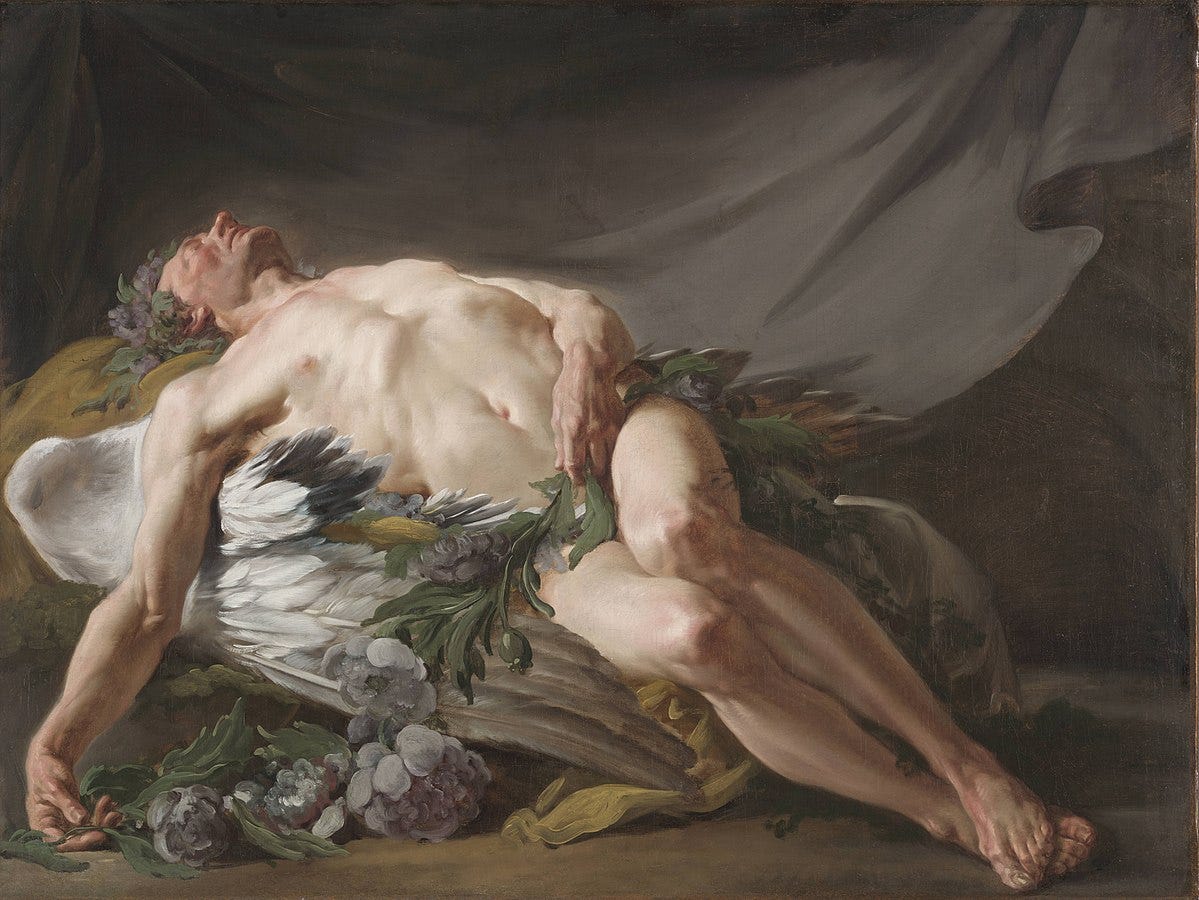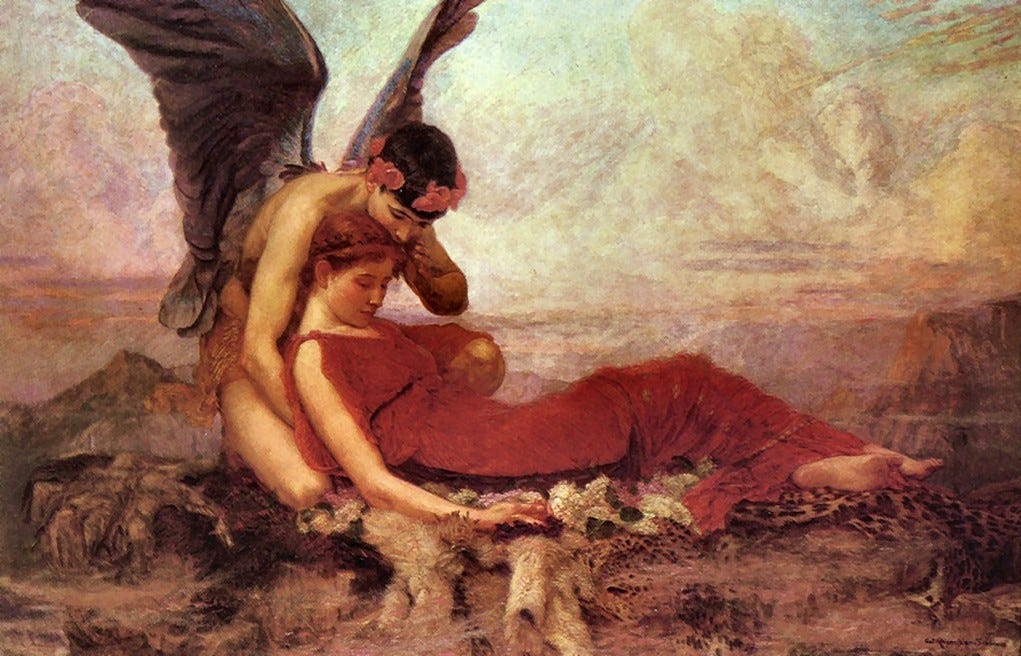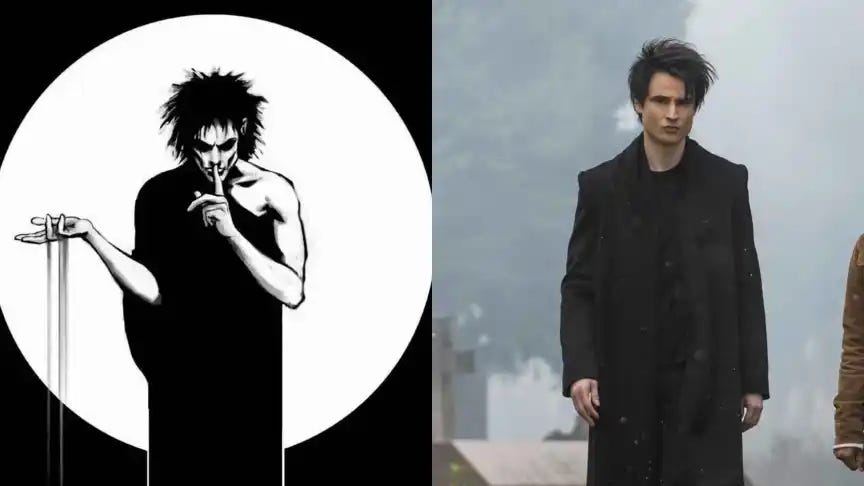Dear Classical Wisdom Reader,
Wake up!
It’s time to talk about dreams…
Now when it comes to the Greek gods, I think we know about the big names like Zeus, Apollo, and Athena… but there are many more than just those.
Despite not being as famous as some of the other figures in the Greek pantheon, Morpheus, the god of dreams, still has an immense and impressive legacy…
He even has his own Netflix series!
Yet who was the god of dreams exactly?
Read on to discover all about a god that you already may have spent about a third of your life with….
Sweet dreams!
All the best,
Sean Kelly
Managing Editor
Classical Wisdom
The Mysterious Morpheus
by Ed Whelan
Mythology often personifies aspects of life and nature, transferring these elements into gods. It should be no surprise then that our state of repose – something we do for a third of our life – is no exception. In Greek mythology, the god of dreams was Morpheus.
He was the son of Hypnos, the god of sleep, and his mother was Pasithea. She was the goddess of relaxation, but also (somewhat paradoxically) of hallucinations. Moreover, his grandmother was Nyx, the fearsome deity of Night. All of the various aspects of these different deities culminate in the characteristics that we associate with dreaming.
Morpheus: The Dream-maker
Hypnos had many children, but he selected Morpheus to be the god of dreams because of his uncanny ability to assume forms and mimic living beings.
Morpheus was assisted by the Oneiroi (the Greek word for dreams) who were all his brothers. They helped him to create the dreams of humans. One sibling, Icelus, made the dreams seem real, while another, Phobetor, was responsible for phobic or terrifying dreams. Phantasus, the third brother, created fantastic and surreal dreams. Morpheus was their leader. As a result, he ensured that he alone oversaw the dreams of monarchs and heroes. Moreover, he could even appear to the gods in Olympus through dreams.
Morpheus’ name is derived from the Greek for ‘form’ or ‘shape’. He came to people in sleep and assumed the forms that people dreamt. Morpheus was an artist of dreams, and he could shape images and visions and make them seem alive. He could perfectly imitate a person, their voice, their walk, mannerism, and moods. There was one limitation to Morpheus; he could only transform himself into a male figure.
In the Arms of Morpheus
The ancient Greeks had a saying regarding the ‘arms of Morpheus’. When in the embrace of the god, an individual would enjoy deep, peaceful sleep; they would also dream. These were dreams about the future and upcoming events.
Morpheus did not merely make people dream of simple and everyday things. He was doing so much more. Morpheus was a messenger of the gods and he was transmitting, through dreams, messages from the divinities. The Greeks, and later the Romans, believed that many dreams were portents and omens. As a result, the god of dreams was a very important figure in the Classical world and was highly revered.
Messenger of the Gods
Morpheus was a winged being. He had two wings on his back that allowed him to travel great distances and at great speed. These wings were a gift from his uncle, Thanatos, the god of Death, and one of the most powerful of all the ancient deities. Some Greeks believed that Morpheus was a messenger of death and that he could appear to predict the death of a person.
The god of dreams was very protective of his family. His father Hypnos enjoyed tricking Zeus, which meant he often incurred the wrath of the king of gods. Morpheus would carry Hypnos to safety in a place known to the Greeks as the Dream World.
The Dream World of Morpheus
This place was where the god of sleep, (and in some versions) his wife and their many children lived. When not appearing to humans in the form of dreams, Morpheus would sleep here. A lot. According to the stories, his bedroom was a cave and it was filled with poppy seeds. These were used in ancient times to produce primitive pain killers, which caused drowsiness. Indeed, the name of the drug morphine is derived from Morpheus.
The only entrance to the Dream World was through the Gates of Morpheus. The River of Forgetfulness and the River of Oblivion, two characteristics of sleep and dreams, were found in Morpheus’ Dream World. The realm of dreams was guarded by two monsters who would appear when any man or god came close to the rivers. Olympian Gods such as Apollo and Zeus, however, were allowed to enter the Dream World.
Morpheus was one of the minor gods, but he was very powerful. He was among the busiest of the gods, as he was constantly forming dreams for both humans and deities. In most version of the myths, he did not have a partner like most of the other gods, presumably because he was too busy. Some versions of the myth have him as the husband of Iris, the goddess of the rainbow, and another messenger of the gods.
The god of dreams still fascinates writers to this day. Perhaps most famously, the character of Morpheus in The Matrix films was inspired by the god. Elsewhere, the main character in Neil Gaiman’s graphic novel The Sandman is an interpretation of Morpheus. It has recently been adapted by Netflix, bringing the god of dreams to a new audience.
So, after thousands of years, Morpheus still captures the imagination. No-one knows what the future holds for him… except that you’ll be seeing him in your dreams.








In my head, this post is narrated by Laurence Fishburne.
Wonderful information. It is too bad that children aren't taught Classical Wisdom in school any longer. Keep up the great work that you do. NR